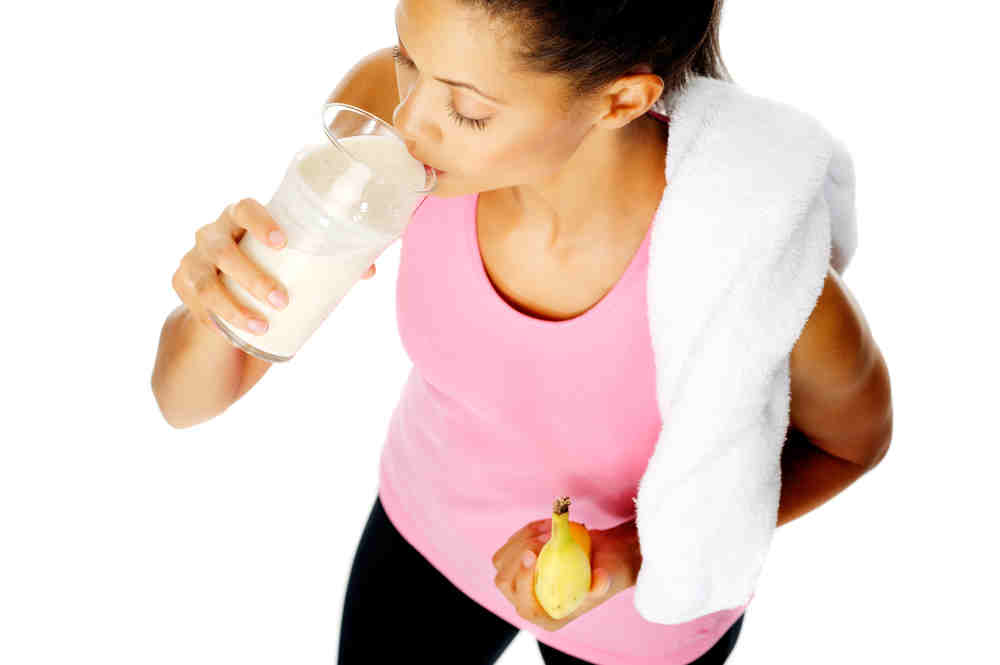
According to counsel professional and competitive athletes in numerous sports, as well as fitness enthusiasts, different sports person definitely have different nutrition needs, but they do have one thing in common: In order to get the most out of being active, everyone needs to eat properly to help their bodies recover from the wear and tear of exercise.
Here are six rules to follow, and how to prevent overdoing it, which can cancel out the weight-loss benefits of breaking a sweat.
1. Eat within 30 to 60 minutes post exercise
Post-exercise foods are about putting back what’s lost, and focus on getting what you need for repair and healing so if you’ve had a particularly tough workout, grab a “recovery” meal as soon as possible. Exercise puts stress on muscles, joints, and bones, and your body “uses up” nutrients during workouts. In fact, it’s the recovery from exercise that really allows you to see results in terms of building strength, endurance, and lean muscle tissue. Not recovering properly can leave you weaker as you go into your next workout, and increase the injury risk.
2. Consider other foods beyond protein
An ideal recovery meal should also include good fat needed for healing muscles and joints, other than protein which is a building block of muscle, it could also help when you add plenty of nutrient-rich produce, and a healthy source of starch like quinoa, sweet potato, or beans. All these foods will replenish nutrients that have been depleted, and provide energy to fuel your post-exercise metabolism. Some great food post workout include:
1. Smoothie made with either pea protein powder or grass-fed organic whey protein, whipped with fruit, leafy greens, almond butter or coconut oil,
2. Oats or quinoa
3. Omelet made with one whole organic egg and three whites, paired with veggies, avocado, and black beans.
3. Get the real deal
Choose wisely and learn to love healthy. Nutrients from the foods you eat are the foundation of the structure, function, and integrity of every one of your cells. Your body is continuously repairing, healing, and rebuilding itself, and how healthy your new cells are is directly determined by how well you’ve been eating. So even if you’re lean and you burn a lot of calories, avoiding highly processed food and eating a clean, nutrient rich, whole foods diet can help you get the most out of all of your hard work, including cells that function better, and are less susceptible to premature aging, injury, and disease.
4. Don’t overcompensate
If weight loss is your goal, it’s important that you watch you eat post workout – most of the time we tend heat more than what we need because of the fact we’re tired. In fact, it’s incredibly easy to “eat back” all of what you’ve burned. For example, in a one-hour elliptical session, an average woman burns about 490 calories. A venti frappucino contains more than 500 calories. Even if you don’t splurge on treats like these, you may be tempted to sneak a little extra almond butter, or whip cream or be less mindful of your oatmeal or fruit portions, and those extras can add up. And if you’re going to be eating a meal within an hour of finishing up a workout, you don’t also need a post-exercise bar or snack. In short, it is also important to prepare the healthiest portions after your workout.
5. Rehydrate
You probably need a sports drink rather than plain water during exercise if you think you’re opt for a longer exercise – more than an hour. These beverages are designed to keep you well hydrated, but they also provide electrolytes to replace those lost in your sweat (like sodium, which makes sweat salty; and potassium, which helps regulate heart rhythm), as well as fuel to keep you going. If your workouts are less strenuous, shorter, climate controlled, or not so sweaty, plain H2O is totally fine. The general rule of thumb is to drink at least two cups of fluid two hours before exercise, another two cups 15 minutes prior, and a half-cup every 15 minutes during. Post exercise, aim for two cups of water (16 ounces) for every pound of body weight lost, and monitor the color of your urine—if you’re well hydrated it should be pale.
6. Watch your alcohol intake
Key is moderation. Some athletes and active people enjoy imbibing a bit after working out. Alcohol in moderation is fine, but make sure to eat first to start the recovery process. Also, it’s important to know that alcohol has been shown to accelerate post-exercise muscle loss and the loss of muscle strength by as much as 40%. It can also interfere with replenishing glycogen, the storage form of carbohydrates you stock away in your muscles to serve as energy “piggy banks.” Less glycogen can translate into a lack of power or endurance during your next workout, so aim for moderation.
Original article and pictures take www.healthdigezt.com site
Комментариев нет:
Отправить комментарий